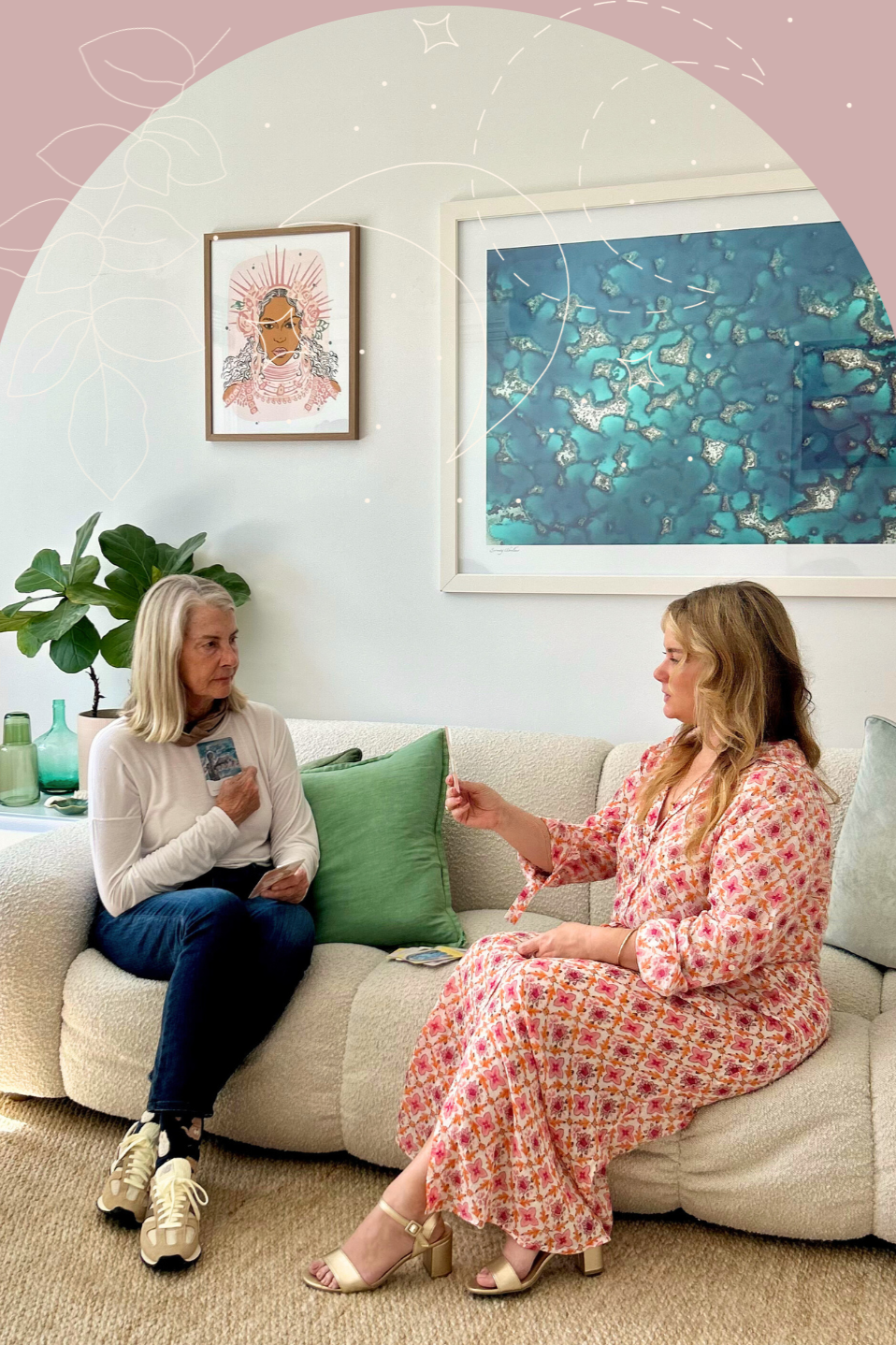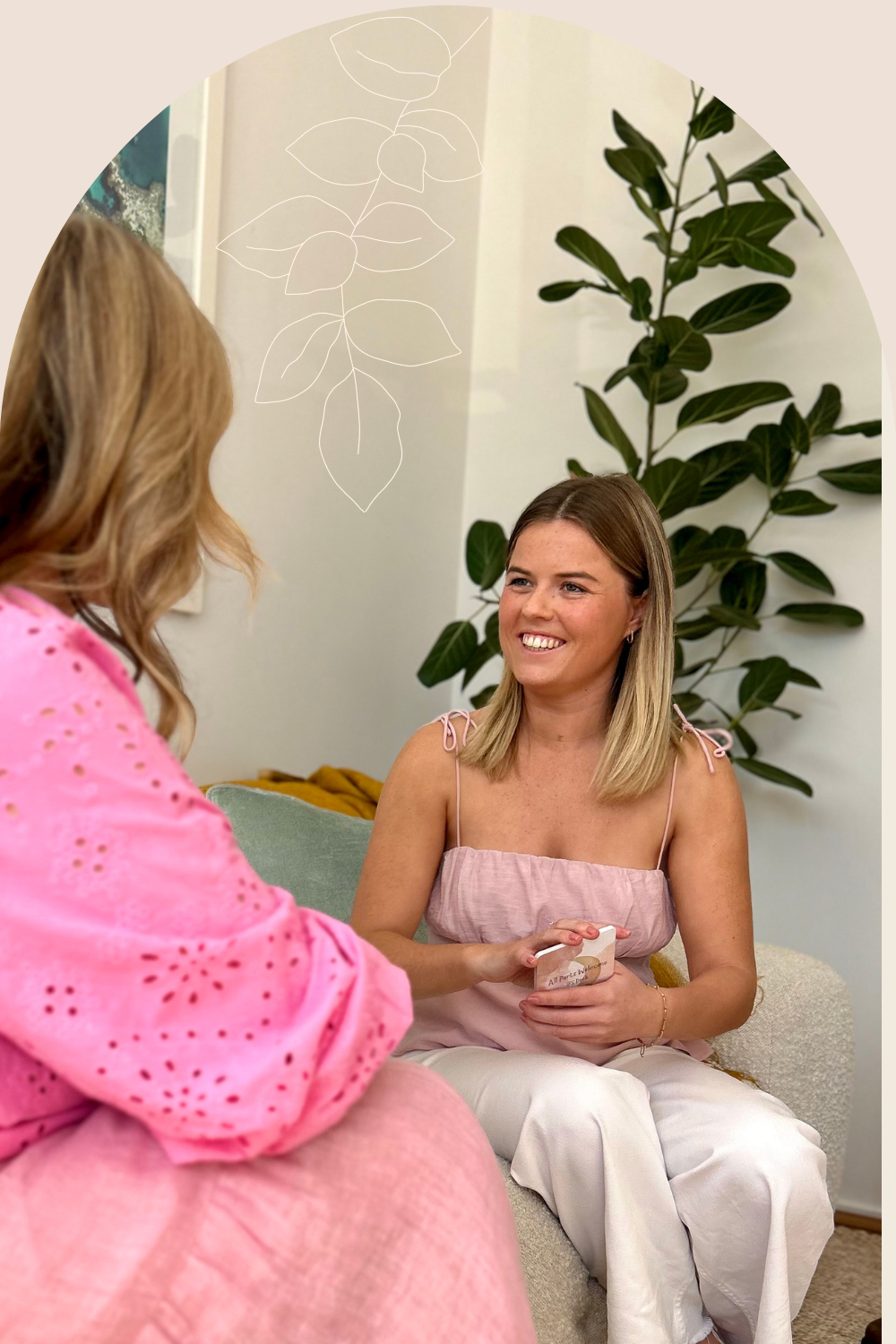
Internal Family Systems & Parts-Work Therapy Perth
IFS and Parts-work at Gabriella de Mori & Co.
At Gabriella de Mori & Co, IFS and parts-work therapy is one of our specialities. Our therapists are passionate about this modality as it truly brings something unique, surprising and unsuspecting to the therapy room.
In a supportive, safe environment, you can explore yourself, your Parts and how your internal world is organised in an insightful and helpful way, giving you a roadmap. Your therapist may invite you to use visual cards, map your Inner parts on paper, explore guided meditations with your eyes closed, or converse with Parts in different chairs in the therapy room.
If you feel traditional talk-therapy didn’t work for you, or you really want to get our of your head and into your body, IFS and parts-work will suit you well.
What is Internal Family Systems?
Internal Family Systems (IFS) Therapy, or parts-work, is a compassionate and evidence-based approach that helps individuals understand and harmonise the different parts of their inner world. Originally developed to address trauma, IFS is now widely used to support a range of issues, including anxiety, depression, and relationship challenges.
This unique method promotes self-awareness and self-compassion by guiding you to explore and heal the parts of yourself that may feel conflicted or overwhelmed. Mindfulness and guided visual practices can be used, taking your self-exploration far beyond traditional talk-therapy.
For those who feel stuck in thoughts or like other cognitive bawd methods haven’t worked for them, IFS offers something truly different and unqiue.
How can IFS support your challenges?
Internal Family Systems (IFS) therapy is a gentle and curious modality that can support you uniquely through:
-
By addressing inner conflicts and promoting emotional integration, IFS helps individuals manage overwhelming emotions and negative thought patterns that arise in anxiety and depression symptoms. IFS will help you connect to your Higher Self and out of anxiety and depression running the show and directing your day. This spaciousness from the anxious or depressed throughts is truly empowering.
-
IFS facilitates the healing of trauma by helping clients process painful memories and the emotional burdens carried by different parts of themselves. This often includes Inner Child healing and rewriting stories or beliefs that have been long-held. We connect to the hurt and traumatised younger parts of you and visually and physically bring yourself into a sense of safety. Often, traumatised parts of you are time-stuck in the past, and IFS beautifully helps them realise you’re a strong, resilient and capable adult that is no longer stuck in the past trauma.
-
IFS helps individuals connect with their true selves, fostering greater self-compassion and confidence. You are innately a confident person; however, we often need to work with the shame and Inner Critic parts of you that are telling you otherwise. IFS will help to soften these negative parts of you and understand why they have become so strong in your life. When they no longer run the show, your authenticity and true self can finally shine.
-
Relationships are the most triggering part of the human experience, and often many Parts of you get activated in relationships, whether that’s fear of being rejected, anger, defensiveness, or not feeling good enough. IFS can support healthier communication and emotional dynamics within relationships as you soothe your activated parts and connect to what your true needs and desires are.
-
IFS provides a compassionate framework for processing grief, allowing individuals to navigate complex emotions with greater ease.
Grief can often be unexpected, arrive in waves or feel consuming. IFS will help you unpack and explore the many Parts of you operating in grief, and allow you to find your balance, hope and sense of joy again.
-
IFS helps you reconnect to your true Self, and make aligned and authentic decisions, which can be challenging for many people. This is because perfectionism, shame, people-pleasing, or control parts usually get in the way. By working to soften those Parts, your authentic, confident Self can start to lead. When triggered, IFS will show you how to remain calm, not take the bait on activated Parts, and stay connected to your true self.
How Does IFS Therapy Work?
IFS therapy gently invites you to explore the different parts of yourself, each representing emotions, thoughts, and past experiences. These parts often develop as protective mechanisms in response to trauma or difficult life events. For example, you may have a part that feels anxious and overprotective, a part that carries sadness or shame, or a part that feels disconnected or numb due to past hurts.
In a safe and compassionate space, your therapist will guide you to connect with these parts, allowing you to access your inner "Self" — the wise, loving, and centred part of you. For instance, you might discover a part of you that has been holding onto old grief and gently invite it to share its pain, with your compassionate Self offering love and understanding.
Through this healing process, parts that have been stuck in old patterns can release their burdens, whether it’s a fear of failure, a defensive wall built to protect you, or an inner critic that undermines your confidence. This allows for a more harmonious relationship with yourself and greater emotional balance. Over time, IFS helps you heal from issues like anxiety, depression, trauma, and relationship challenges by fostering greater self-awareness, compassion, and acceptance of all parts of who you are.
What Does an IFS Session Look Like?
An Internal Family Systems (IFS) session typically lasts 60-90 minutes and is conducted by a trained therapist. During the session, your therapist will guide you through a process of gently exploring your internal "parts." You’ll be encouraged to connect with different aspects of your personality, such as protectors or vulnerable exiles, and communicate with them from a place of curiosity and compassion. The therapist helps you unburden these parts, allowing for emotional healing and fostering a sense of internal harmony. Sessions are tailored to your progress and can vary in number based on individual needs.
-
The session begins with your therapist helping you feel grounded and relaxed. This allows you to feel safe and present, so you can fully engage in the process. Your therapist will also take some time to understand the issues you're currently facing, whether they are related to emotions, relationships, or unresolved past experiences.
-
Together with your therapist, you'll begin identifying different "parts" of yourself that are present in the moment. These could be parts that feel anxious, ashamed, angry, or protective, for example. You’ll be encouraged to connect with these parts, allowing them to express their thoughts and emotions. The therapist may ask open-ended questions to help you better understand the role or function of each part, fostering curiosity rather than judgment.
-
The therapist will guide you to engage with these parts from your core "Self"—a compassionate and wise aspect of you that is always present. The Self is capable of healing, offering empathy, and listening with understanding. When you're connected with your Self, the parts can feel safe to share their deepest concerns and pain. This step creates an internal dialogue between your Self and the parts that need attention.
-
Once you’ve established a connection with your parts, your therapist may guide you through a process of healing. This may involve comforting a wounded part, encouraging it to release old emotions, or inviting it to let go of beliefs that no longer serve you. The goal is to help these parts shift from roles of protection or distress to roles that are more supportive and nurturing.
-
After healing, your therapist will help you bring the different parts into a more harmonious relationship with each other. This may involve reimagining how the parts interact or how they can work together toward your greater well-being. The therapist may ask how these parts feel now, and whether they are ready to integrate their insights into your broader sense of self.
-
The session will conclude with grounding techniques that help you return to a calm and balanced state. This might include breathwork or visualisation, ensuring that you leave the session feeling stable and centred. Your therapist will also help you reflect on what you’ve experienced, ensuring that any emotional shifts are understood and integrated.
-
Finally, there’s a reflective space for you to discuss any feelings or insights you’ve had during the session. You’ll have the opportunity to share how the experience felt and what changes you noticed within yourself. The therapist will offer guidance on how to continue the healing process between sessions, empowering you to stay connected to your Self and the work you’ve done.
IFS Client Testimonial
"Thank you so much for your support, I am so grateful for the sessions we had together. Your kind, compassionate, warm and non-judgmental presence was such a gift during what was the darkest and most painful chapter of my life so far. Being able to meet my inner child in the way you supported me to, was a key piece in my healing.
I am happy and relieved to say that I made it through and am in a much more solid place now. The same pain has still come up as I move through the deeper layers of grief and letting go, but I can relate to it in a different way and hold myself through it.
It was a huge year, the most challenging of my life, but also the most transformative and profound.
There have been so many gifts that have come from the journey, and I can see how it is all an essential part of my evolution.
Thank you so much for meeting me in the depths of my vulnerability and holding me with so much warmth and kindness. I am so grateful." ~ Sonjia

A creative and experiential therapy that brings you out of your head and into a visual experience of all parts of you. From this insightful awareness, you decide which part of you leads the way, and what parts you let go of, finally.
Our Perth-Based IFS and Parts-Work Informed Therapists
Viola Prinz
Registered Counsellor
Viola is an experienced IFS therapist with a warm and compassionate approach. Viola creates a gentle, calming atmosphere where you can go at your own pace. In her therapy room, there is no rush—she will meet you where you are, allowing you to be yourself without pressure. Viola helps you discover your internal guidance, so you can build the confidence to thrive beyond our sessions using Parts-work principles, characterising your parts and externalising them for greater control and understanding.
Gabriella de Mori
Registered Counsellor
Gabriella is the practice owner and principal. She is a dynamic, spirited and warm-hearted registered therapist who loves to guide clients creatively and mindfully with parts-work visual cards, drawing your own inner World map, creating characters for your Parts and exploring guided self-enquiry with your eyes closed.
She has ten years of experience and uniquely incorporates a body-mind approach into all her sessions to guide you to go within and support your Inner World and heal your Inner Child.
Fabian Parker
Registered Counsellor
Fabian Parker is a passionate therapist known for his parts work and inner child healing, both with individual and couples counselling. His supportive, understanding, and wise approach brings warmth and clarity.
Fabian's clients describe him as someone who holds space for their thoughts and experiences while knowing when to step in to help clarify or deepen an insight. His Parts-work helps you deepen your relationshpis and resolution of conflict and misunderstandings.


Get in Touch
Contact Gabriella de Mori & Co. and let us guide you on your therapeutic journey.

If traditional talk-therapy doesn’t shift anything for you, and you really want to get out of your head and experience yourself in a new and insightful way, IFS and Parts-work therapy will suit you well.

Get in touch
Contact Gabriella to discuss working together. I’ll guide you to which therapist is most suitable for you and your needs.
Stay in touch
Connect with us on social media for soulful resources.







